This year’s Fairtrade Fortnight runs from March 6-19 so there’s still time to take part, says Tracy West.
Each year Fairtrade Fortnight has a theme and for 2006 that theme is “Make Fairtrade Your Habit”. The idea is to encourage consumers to buy Fairtrade products on a more regular basis.
Harriet Lamb, director of the Fairtrade Foundation, explains: “We can get stuck in our ways but changing to Fairtrade stock really can help change the world. If we all make Fairtrade our habit we can play a real part in enabling farmers and farm workers to end poverty in their communities.”
A recent MORI poll found that 50% of all UK adults now recognise the Fairtrade mark but even those people who believe in Fairtrade are not buying the products on a regular enough basis. Focus group research found that this is partly because they buy other products through habit, and partly because they are not aware of the huge range of Fairtrade products available. So this is where Fairtrade Fortnight comes in, promoting Fairtrade and all the products that are available.
During last year’s Fortnight, an estimated 7,500 events took place across the country – from parades, concerts and debates, to tea dances, fiestas and family days. In stores it’s an ideal time for sampling, to make customers aware of just how many Fairtrade products are available.
The Co-op is a huge supporter of Fairtrade and part of last year’s publicity for the Fortnight saw comedian Harry Hill dressed up in a specially made Co-op cashier’s shirt at the till of a store in West London. And Asda played host to Simeon Greene from Windwards Bananas, who supplies the supermarket with Fairtrade bananas.
Mark Varney, business development manager at the Fairtrade Foundation, reckons Fairtrade Fortnight is the best time for retailers who have not sold Fairtrade products before to get involved, plus it’s a good time for those who have stocked the products to increase their range.
“The Fairtrade Foundation can help retailers by giving guidance on promotional activity and explaining how best to stock Fairtrade products,” says Varney. A special trade leaflet that explains how retailers can make the most of Fairtrade Fortnight is available on-line at www.fairtrade.org.uk. The leaflet, which doubles as a poster, details new developments in Fairtrade and describes the promotional materials available, many of which are free.
Says Varney: “We know how interested many shoppers are in Fairtrade – indeed the latest TNS Superpanel data found that in the year ending October 2005, penetration of Fairtrade products in UK households rose by 20%, up from 33% to 40%. And according to a MORI poll, awareness is growing fastest among 25- to 34-year-olds.”
He adds: “Fairtrade Fortnight is the ideal opportunity to get more people to buy Fairtrade products and for those who are occasional purchasers to buy regularly across a broader range of categories.
“Visibility for Fairtrade products is crucial. Respondents in focus groups say that they would buy Fairtrade products but can’t always locate them in a store. Promotional activity during Fairtrade Fortnight encourages customers to look out for the Fairtrade mark across more product categories.”
If you need more convincing to get involved then how about this: it’s a proven fact that Fairtrade Fortnight works – in previous years sales volumes of products carrying the Fairtrade mark have trebled over the two weeks when supported by in-store messages and pos material.
WHAT IS FAIRTRADE?
In the developing world, when commodity prices fall dramatically it has a catastrophic impact on the lives of millions of small-scale producers, forcing many into debt and countless others to lose their land and their homes. Too many farmers in the developing world have to contend with fluctuating prices that may not even cover what it costs to produce their crop.
By buying direct from farmers at better prices, the Fairtrade charities give consumers the chance to buy goods which were bought on the basis of a fair trade.
Each year Fairtrade Fortnight has a theme and for 2006 that theme is “Make Fairtrade Your Habit”. The idea is to encourage consumers to buy Fairtrade products on a more regular basis.
Harriet Lamb, director of the Fairtrade Foundation, explains: “We can get stuck in our ways but changing to Fairtrade stock really can help change the world. If we all make Fairtrade our habit we can play a real part in enabling farmers and farm workers to end poverty in their communities.”
A recent MORI poll found that 50% of all UK adults now recognise the Fairtrade mark but even those people who believe in Fairtrade are not buying the products on a regular enough basis. Focus group research found that this is partly because they buy other products through habit, and partly because they are not aware of the huge range of Fairtrade products available. So this is where Fairtrade Fortnight comes in, promoting Fairtrade and all the products that are available.
During last year’s Fortnight, an estimated 7,500 events took place across the country – from parades, concerts and debates, to tea dances, fiestas and family days. In stores it’s an ideal time for sampling, to make customers aware of just how many Fairtrade products are available.
The Co-op is a huge supporter of Fairtrade and part of last year’s publicity for the Fortnight saw comedian Harry Hill dressed up in a specially made Co-op cashier’s shirt at the till of a store in West London. And Asda played host to Simeon Greene from Windwards Bananas, who supplies the supermarket with Fairtrade bananas.
Mark Varney, business development manager at the Fairtrade Foundation, reckons Fairtrade Fortnight is the best time for retailers who have not sold Fairtrade products before to get involved, plus it’s a good time for those who have stocked the products to increase their range.
“The Fairtrade Foundation can help retailers by giving guidance on promotional activity and explaining how best to stock Fairtrade products,” says Varney. A special trade leaflet that explains how retailers can make the most of Fairtrade Fortnight is available on-line at www.fairtrade.org.uk. The leaflet, which doubles as a poster, details new developments in Fairtrade and describes the promotional materials available, many of which are free.
Says Varney: “We know how interested many shoppers are in Fairtrade – indeed the latest TNS Superpanel data found that in the year ending October 2005, penetration of Fairtrade products in UK households rose by 20%, up from 33% to 40%. And according to a MORI poll, awareness is growing fastest among 25- to 34-year-olds.”
He adds: “Fairtrade Fortnight is the ideal opportunity to get more people to buy Fairtrade products and for those who are occasional purchasers to buy regularly across a broader range of categories.
“Visibility for Fairtrade products is crucial. Respondents in focus groups say that they would buy Fairtrade products but can’t always locate them in a store. Promotional activity during Fairtrade Fortnight encourages customers to look out for the Fairtrade mark across more product categories.”
If you need more convincing to get involved then how about this: it’s a proven fact that Fairtrade Fortnight works – in previous years sales volumes of products carrying the Fairtrade mark have trebled over the two weeks when supported by in-store messages and pos material.
WHAT IS FAIRTRADE?
In the developing world, when commodity prices fall dramatically it has a catastrophic impact on the lives of millions of small-scale producers, forcing many into debt and countless others to lose their land and their homes. Too many farmers in the developing world have to contend with fluctuating prices that may not even cover what it costs to produce their crop.
By buying direct from farmers at better prices, the Fairtrade charities give consumers the chance to buy goods which were bought on the basis of a fair trade.


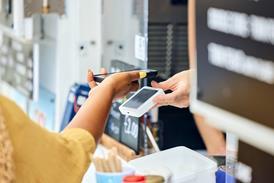
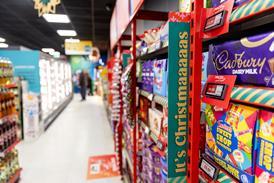



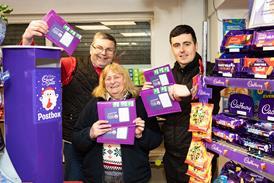
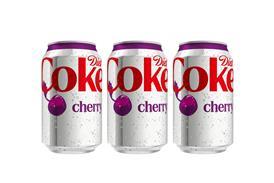
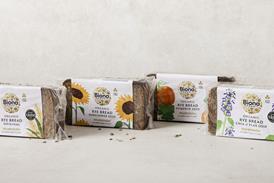
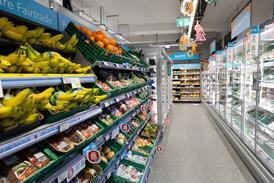














No comments yet